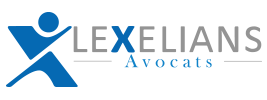Who monitors condominium managers? An in-depth analysis

Who monitors condominium managers? An in-depth analysis
Managing a co-ownership is a complex task that requires competence, rigor and transparency. But who watches over co-ownership trustees to ensure that their actions comply with the rules and the expectations of co-owners? In this article, we'll explore the different players and mechanisms involved in monitoring condominium syndicates.
Introduction: Why monitoring condominium managers is crucial
Syndics play a central role in managing condominiums, from building maintenance and financial management to dispute resolution. Yet mistakes and abuses can happen. It is therefore essential to understand who oversees condominium syndicates to ensure transparent and efficient management. This article will guide you through the main players and control mechanisms, giving you a better understanding of your rights and remedies.
The role of the union council
The syndic's council is one of the primary supervisory bodies for condominium managers. Composed of co-owners elected at the general meeting, the council's mission is to assist and monitor the day-to-day management of the managing agent.
Daily assistance and control
The syndic's council works closely with the managing agent, checking accounts, contracts and work carried out. This close working relationship enables any anomalies or malfunctions to be detected at an early stage.
Rights and obligations
Syndicate council members have the right to ask the managing agent for explanations, to access management documents and to report any suspicious behavior. In the event of disagreement, they can call an extraordinary general meeting to discuss the problems encountered.
The importance of transparency
Transparency and cooperation on the part of the syndic are crucial to the success of the conseil syndical. A climate of trust is essential for harmonious co-ownership management.
The general meeting of co-owners
The general meeting is another pillar of condominium management control. Made up of all co-owners, it meets at least once a year to take important decisions concerning the co-ownership.
Decision-making power
At the general meeting, co-owners vote on budgets, works and the renewal or dismissal of the managing agent. This decision-making power enables the managing agent to be kept under constant surveillance.
Revocation process
If the co-owners feel that the managing agent is not fulfilling his duties properly, they can vote for his dismissal. This decision must be placed on the agenda and obtain the required majority to be validated.
The importance of participation
To fully exercise their control role, co-owners must actively participate in general meetings. Assiduous participation ensures that decisions taken reflect the interests of the majority.
Audit firms and chartered accountants
Audit firms and chartered accountants also play a crucial role in supervising condominium managers. Their expertise guarantees the conformity and transparency of condominium accounts.
Audit of financial statements
Audit firms carry out independent audits of the condominium's accounts, ensuring that expenses and income are correctly recorded and justified. This audit is essential to detect any fraud or mismanagement.
Accounting expertise
Chartered accountants help the management board and co-owners to understand financial documents. Their role is to make the accounts accessible and comprehensible to all.
Guarantees provided
The involvement of independent professionals provides an additional guarantee of transparency and rigor in the financial management of your condominium. Their expertise reduces the risk of embezzlement.
Condominium owners' associations
Condominium associations offer invaluable support to co-owners in the event of a dispute with the syndic. They offer legal advice, practical assistance and resources to defend their rights.
Legal advice
These associations provide lawyers specialized in condominium law. These professionals provide legal advice, help draft correspondence and assist co-owners with legal proceedings.
Practical aids
The associations organize training courses and information meetings to help co-owners better understand their rights and obligations. They also provide model documents and practical guides.
Resources and support
By joining an association, co-owners benefit from a network of support and resources to help them deal with any abuses on the part of the managing agent. This solidarity strengthens their ability to act collectively.
Lawyers specializing in condominium law
Lawyers specializing in condominium law play a decisive role in resolving disputes between condominium owners and property managers. Their legal expertise enables them to effectively defend the interests of co-owners.
Advisory role
Lawyers provide legal advice on the rights and obligations of co-owners and the syndic. They help interpret co-ownership by-laws and resolve disputes amicably.
Legal action
In the event of unresolved disputes, lawyers take legal action to defend co-owners. They represent their clients before the courts and ensure that their rights are respected.
Expertise and experience
Lawyers specializing in condominium law have in-depth knowledge of the laws and regulations in force. Their experience enables them to handle complex cases and find solutions adapted to each situation.
Regulatory authorities
Regulatory authorities such as the Commission Nationale de l'Informatique et des Libertés (CNIL) and the Direction Générale de la Concurrence, de la Consommation et de la Répression des Fraudes (DGCCRF) also monitor the activities of condominium managers.
CNIL
The CNIL ensures compliance with personal data protection rules. It monitors the practices of property managers in terms of collecting, processing and storing co-owner data.
DGCCRF
The DGCCRF ensures compliance with competition and consumer regulations. It conducts investigations and checks to detect abusive or fraudulent practices by condominium management companies.
Sanctions and controls
In the event of failure to comply with the rules, these authorities can impose sanctions on offending managers. Their regular checks help to ensure that management is transparent and compliant with current legislation.
The importance of ongoing training
Ongoing training for condominium managers is essential to ensure professional, standards-compliant management. Training courses keep property managers abreast of legislative developments and best practices.
Training programs
Specialized organizations offer training programs tailored to the needs of managing agents. They cover a wide range of subjects, including financial management, relations with co-owners and current regulations.
Benefits for co-owners
Ongoing training for managing agents also benefits co-owners. A well-trained syndic is better able to manage the co-ownership effectively and meet the expectations of co-owners.
Legal obligation
In some cases, ongoing training is a legal requirement for condominium managers. This requirement aims to guarantee a high level of competence and prevent abuse.
Recourse in the event of a dispute
In the event of a dispute with the syndic, it is important to be aware of the remedies available to defend your rights. Co-owners have several options for resolving disputes.
Mediation
Mediation is an amicable solution for resolving disputes without going to court. An impartial and neutral mediator helps the parties reach a mutually satisfactory agreement.
Arbitration
Arbitration is another method of amicable dispute resolution. An arbitrator, chosen by the parties, renders a binding decision. This solution is often faster and less costly than legal recourse.
Legal action
If amicable solutions fail, co-owners can take legal action against the managing agent. They must gather the necessary evidence and follow the legal procedures to assert their rights.
Conclusion: Ensuring transparent and efficient management
Supervision of condominium managers is essential to ensure transparent, efficient management that meets condominium owners' expectations. Several players and mechanisms contribute to this supervision, offering guarantees of quality and security.
By better understanding the role of each party, co-owners can act in full knowledge of the facts and defend their interests proactively. To find out more, please consult our additional resources or contact our condominium law experts.

